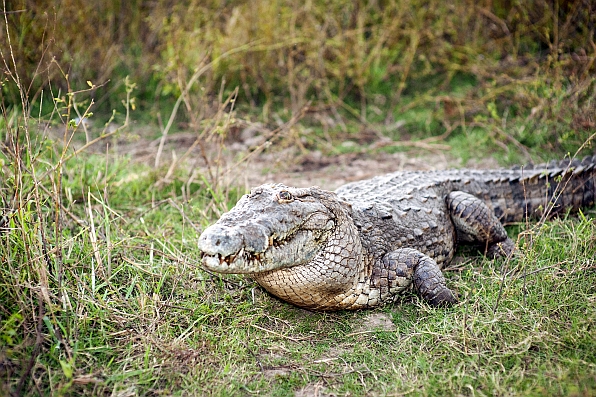The changing benefits of ecosystem services for rural communities in northern Ghana.
Post by: Mul, M.; Pettinotti, L.; Amonoo, N. A.; Bekoe-Obeng, E.; Obuobie, E.

A crocodile in the Upper East Region. Photo: Hamish John Appleby / IWMI
In contrast with affluent parts of the world, people living along the White Volta River in northern Ghana seldom take water for granted. Its seasonal flows shape their livelihoods, and their keen appreciation of water-dependent ecosystems is evident in local beliefs and customs. Under traditional land tenure, for example, a “land priest” (or tindana) has responsibility, at least symbolically, for all major decisions about natural resources. Ponds and the surrounding trees – key features of the region’s “natural infrastructure” – are considered to be the abode of ancestors. The “grandmother crocodile pond” in one village is named after a female ancestor of the local chief, who is said to have come back to life in this form.
Valuing natural infrastructure
To the reverential attitudes of rural communities, researchers have added new insights on the benefits that natural infrastructure provides to local communities, which can help guide decisions about natural resource management. This was the focus of a team led by Marloes Mul, a hydrologist with the International Water Management Institute (IWMI), and Laetitia Pettinotti from the Basque Centre for Climate Change (BC3), who recently conducted a study in northern Ghana’s Talensi and West Mamprusi Districts to examine the natural infrastructure that sustains ecosystem services and to characterize the potential impacts on these services of changes occurring in the region. Through a “participatory rural appraisal,” the researchers captured the views of local communities on these issues, taking care to distinguish between the differing perspectives of women and...Read more
